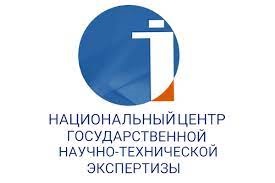TRANSLINGUALISM AND ARTIFICIAL INTELLIGENCE: NEW OPPORTUNITIES FOR THE DEVELOPMENT OF SOFT SKILLS
https://doi.org/10.55491/2411-6076-2025-3-74-85
Abstract
Currently, artificial intelligence (AI) and natural language processing significantly influence the development of modern technologies. AI offers opportunities to improve efficiency, save time, and optimize work processes across various fields. In recent years, the use of AI in education, particularly in language learning, has become widespread. The relevance of this study lies in the fact that, in the era of globalization, improving language learning through modern technological solutions is both important and promising. AI enables the development of adaptive curricula tailored to learners' proficiency levels, enhances learning efficiency, provides interactive educational materials, automates assessment of language skills, and increases motivation. This study explores approaches to developing a model for an integrated platform for learning the Kazakh language using AI. The aim of the study is to design an integrated platform model that supports the simultaneous development of language proficiency and flexible skills (soft skills) when teaching Kazakh in a translingual context using the generative capabilities of AI. To achieve this aim, existing AI-based platforms were analyzed, the scientific and methodological foundations of the translingual approach were defined, and the architecture of the proposed model was designed. The scientific novelty of the research lies in analyzing network platforms that utilize AI to identify optimal applications and in developing and proposing a platform model designed for second-language acquisition in a translingual framework by fostering flexible skills and comparing the target language with the native language. The study includes a comparative analysis of the advantages and limitations of educational applications such as Course Hero, Gradescope, Cognii AI, Socratic, and Praktika AI. The findings indicate that Cognii AI and Praktika AI are the most effective for meeting learners’ needs. The practical significance of the study is that its results may be useful for educators, specialists, and developers of AI-based online platforms and may serve as a guideline for integrating such technologies into language education. The study proposes implementing a translingual approach through AI-based learning platforms, enabling learners to develop communication, critical thinking, and emotional intelligence by comparing the native and target languages.
Keywords
About the Authors
S. ОdanovaKazakhstan
Sagirа Оdanova, Candidate of Philological Sciences, Рrofessor
Almaty
L. Ibraimova
Kazakhstan
Lira Ibraimova, Candidate of Philological Sciences, Acting Associate Professor,
Almaty
K. Moldabayeva
Kazakhstan
Karlygash Moldabayeva, Doctor of Philosophy (PhD)
Almaty
References
1. Anderson, J. (2017) Reimagining English language learners from a translingual perspective. ELT Journal. Published by Oxford University Press: https://doi.org/10.1093/elt/ccx029. (in English)
2. Bao, M. (2019) Can home use of speech-enabled artificial intelligence mitigate foreign language anxiety – Investigation of a concept. Arab World English Journal Special Issue on CALL. No.5. P. 28-40. (in English)
3. Brinkschulte, Melanie, Grieshammer, Ella, Stoian, Monica-Elena. (2018) Translingual Academic Writing at Internationalised Universities: Learning From Scholars. Journal of Academic Writing. Vol. 8. No.2. P. 150-160. (in English)
4. Desjat' luchshih instrumentov II dlja obrazovanija (Janvar' 2025 g.). Unite.ai. – URL: https://www.unite.ai/ru/10-bestai-tools-for-education/ (qaralgan kuni: 17.01.2025). [Top Ten AI Tools for Education (January 2025). Unite.ai . – URL: https://www.unite.ai/ru/10-best-ai-tools-for-education / (date of request: 08/25/2024).] (in Russian)
5. Hyun-Sook, Kang, Mark Barba, Pacheco. (2020) Translingual competence and study abroad: shifts in sojourners’ approaches to second language learning. Language and Education. P. 425-439. (in English)
6. Kurilenko, V.B., Birjukova, Ju.N., Cоtova, D. (2020) Translingval’nyj podhod v obuchenii inostrannym jazykam: sushhnost’, specifika, lingvodidakticheskij potencial. Tehnologii, obrazovanie, nauka: strategija proryva. Sbornik nauchnyh trudov po materialam Mezhdunarodnoj nauchno-prakticheskoj konferencii. Belgorod, 6 marta 2020. S. 55. [Kurilenko, V.B., Biryukova, Yu.N., Tsotova, D. (2020) Translingual approach in teaching foreign languages: essence, specificity, linguistic and didactic potential. Technologies, education, science: a breakthrough strategy Collection of scientific papers based on the materials of the International Scientific and Practical Conference Belgorod, March 6, 2020. P. 55.] (in Russian)
7. Li Wei, Wing Yee (Jennifer), Ho. (2018) Language Learning Sans Frontiers: A Translanguaging View. Annual Review of Applied Linguistics, 38. P. 33-59. doi: 10.1017/S0267190518000053. (in English)
8. Marr, B., Ward, M. (2019) Artificial intelligence in practice: how 50 successful companies used artificial intelligence to solve problems. Communication tool: chatbot. International Journal of Computer Science and Engineering. Vol. 5. No.5. P. 8-12. (in English)
9. Memleket basshysy Qasym-Zhomart Tоqaevtyng ulttyq quryltajdyng «Adal adam – Adal engbek – Adal tabys» atty ushіnshі otyrysynda sojlegen sozi. URL: https://www.akorda.kz/kz/memleket-basshysy-kasym-zhomart-tokaevtyn-ulttykkuryltaydyn-adal-adam-adal-enbek-adal-tabys-atty-ushinshi-otyrysynda-soylegen-sozi-1525727 (qaralgan kuni: 25.08.2024).
10. [Speech of the head of state Kassym-Zhomart Tokayev at the third meeting of the National Kurultai "Honest man – Honest labor – Honest success". URL: https://www.akorda.kz/kz/memleket-basshysy-kasym-zhomart-tokaevtyn-ulttyk-kuryltaydynadal-adam-adal-enbek-adal-tabys-atty-ushinshi-otyrysynda-soylegen-sozi-1525727 (review date: 25.08.2024).] (in Kazakh)
11. Nurcahyoko, K. (2016) Cultural snapshot: Fostering crosscultural understanding through cultural projects. International Journal of Education (IJE). Vol. 4. No.4. P. 29-37. (in English)
12. Qazaq tilin ujrenuge arnalgan 11 onlajn qural. SKnews.kz. – URL: https://sknews.kz/news/view/kazak-tilin-yyrenugearnalgan-11-onlayn-kyral (qaralgan kuni: 25.08.2024). [11 online tools for learning the Kazakh language. SKnews.kz. - URL: https://sknews.kz/news/view/kazak-tilin-yyrenuge-arnalgan-11-onlayn-kyral (review date: 25.08.2024).] (in Kazakh)
13. Rahmetova, R.S. (2012) Qazaq tilin denggejlik oqytudyng gylymi-metodologijalyq negizderi. Almaty, 2012. 227 b.
14. [Rakhmetova, R.S. (2012) Scientific and methodological foundations of level teaching of the Kazakh language. Almaty, 227 p.] (in Kazakh)
15. Ryan, R.M., Deci, E.L. (2000) Self-determination theory and the facilitation of intrinsic motivation, social development, and well-being. American Psychologist, 55(1), 68-78. https://doi.org/10.1037/0003-066X.55.1.68. (in English)
16. Sitong, Wang. (2022) Exploring the translingual approach to English as a foreign language writing in China. International Journal of Education (IJE) Vol. 10. No.3. https://doi.org/10.5121/ije.2022.10302. (in English)
17. Vanitha, Thurairasu. (2022) Gamification-Based Learning as the future of language learning. European Journal of Humanities and Social Sciences. Vol. 2. No.6. P. 62-69. http://dx.doi.org/10.24018/ejsocial.2022.2.6.353. (in English)
18. Yermakov, D.S., Аmantai, Zh.А. (2021) Soft skills models. Modern education and soft skills. Education Policy. No.4. P. 42-50. (in English)
Review
For citations:
Оdanova S., Ibraimova L., Moldabayeva K. TRANSLINGUALISM AND ARTIFICIAL INTELLIGENCE: NEW OPPORTUNITIES FOR THE DEVELOPMENT OF SOFT SKILLS. Tiltanym. 2025;(3):74-85. (In Kazakh) https://doi.org/10.55491/2411-6076-2025-3-74-85
JATS XML

















